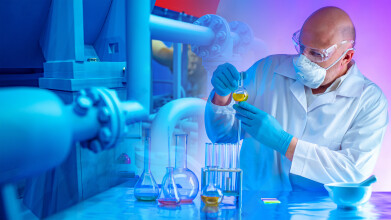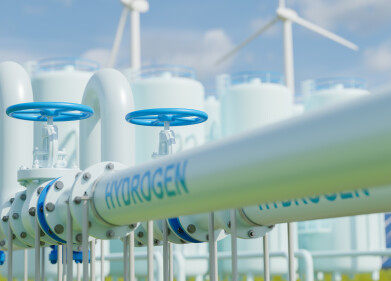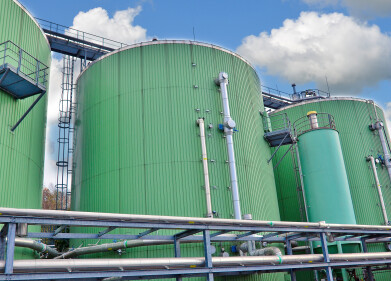Fuel for thought
Could we use methane to make plastics?
Jan 20 2025
Methane, a potent greenhouse gas, has long posed a challenge due to its significant impact on global warming and the complexities involved in its utilization. Researchers at the Massachusetts Institute of Technology (MIT) have made a breakthrough by developing a novel catalytic system capable of converting methane into high-value polymers under ambient conditions. This innovation, detailed in Nature Catalysis, could transform methane from a problematic emission into a versatile feedstock for sustainable polymer production.
The MIT team, led by Michael Strano, Daniel Lundberg, and Jimin Kim, created a hybrid catalyst that operates effectively at room temperature and atmospheric pressure. The catalyst combines iron-modified aluminum silicate (a zeolite) with an enzyme, alcohol oxidase. Together, they enable a sequence of reactions that oxidize methane into valuable intermediates without the need for high energy inputs, unlike traditional methods that rely on extreme temperatures and pressures.
Methane, composed of one carbon atom bonded to four hydrogen atoms, is an abundant and energy-rich molecule. However, its inertness makes it difficult to convert into other compounds. By employing this catalytic system, methane is first oxidized to methanol via the zeolite. The alcohol oxidase then converts methanol into formaldehyde and hydrogen peroxide. The latter reenters the zeolite to facilitate further oxidation of methane, creating a closed-loop catalytic cycle.
This system's low energy requirements make it a practical solution for industries that produce methane emissions, such as agriculture and natural gas infrastructure. The ability to perform these reactions under ambient conditions also opens doors for methane capture and utilization in diverse settings, including landfills and livestock farms.
Methane is responsible for approximately 15% of global temperature increases due to its high heat-absorption capacity. While its atmospheric concentration is much lower than carbon dioxide, its global warming potential over a 20-year period is about 80 times higher. Addressing methane emissions is therefore critical for mitigating climate change.
This catalytic technology not only prevents methane from entering the atmosphere but also converts it into valuable products. Formaldehyde, a key intermediate generated by the process, can be used to synthesize urea-formaldehyde—a polymer with widespread applications in textiles, particle boards, and adhesives. By incorporating urea, a nitrogen-containing compound, the researchers demonstrated the efficient production of urea-formaldehyde polymers with high material growth rates.
The potential applications of this technology extend beyond polymer production. Methane-derived polymers could be employed as sealants in natural gas pipelines, reducing leaks and enhancing system integrity. Additionally, this catalytic approach could be integrated with other carbon capture and utilization systems to create a circular economy for methane and carbon dioxide.
While this research marks a significant step forward, challenges remain in scaling the technology for industrial applications. The integration of synthetic catalysts and biological enzymes requires careful optimization, as their operational conditions often differ. However, experts in the field, such as Damien Debecker of the University of Louvain, recognize the promise of hybrid catalysis for complex reaction systems.
The study’s authors are also exploring complementary technologies, such as catalysts for carbon dioxide reduction, to create synergies in sustainable chemical production. These efforts align with broader goals to decarbonize industrial processes and promote the adoption of renewable feedstocks.
Supported by the U.S. Department of Energy, this research highlights the dual benefits of methane valorization: reducing greenhouse gas emissions and producing valuable materials. As industries increasingly seek sustainable solutions, innovations like this catalytic system could play a pivotal role in achieving global climate and sustainability targets.
Digital Edition
PIN 25.6 Buyers' Guide
January 2025
Buyers' Guide Directory - Product Listings by Category - Suppliers Listings (A-Z) Articles Analytical Instrumentation - ASTM D7042: The Quantum Leap in Viscosity Testing Technology -...
View all digital editions
Events
Jan 25 2025 San Diego, CA, USA
SPE Hydraulic Fracturing Technology Conference and Exhibition
Feb 04 2025 The Woodlands, TX, USA
Feb 05 2025 Guangzhou, China
Trinidad and Tobago Energy Conference 2025
Feb 10 2025 Point Lisas, Trinidad
Feb 10 2025 Lagos, Nigeria



















